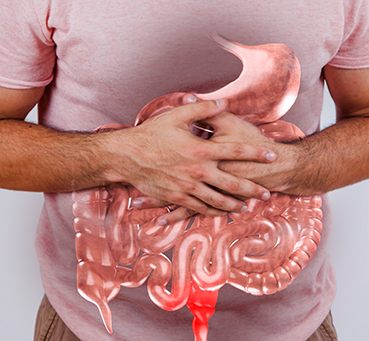Gastroscopy Demystified: Your Essential Guide to Digestive Health
May 29, 2024
Gastroscopy, often called an upper gastrointestinal endoscopy or esophagogastroduodenoscopy (EGD), is a vital medical procedure used to examine the inner lining of the esophagus, stomach, and the beginning of the small intestine. Understanding what to expect from gastroscopy is essential for anyone facing the procedure or looking to learn more about gastrointestinal health. In this guide, we'll break down the purpose, procedure, preparation, and potential risks associated with gastroscopy in a clear and accessible way.

Purpose of Gastroscopy:
Gastroscopy serves as a diagnostic tool for a range of gastrointestinal issues, helping doctors identify and evaluate conditions like chronic heartburn, difficulty swallowing, unexplained weight loss, abdominal pain, and gastrointestinal bleeding. It's also valuable for spotting abnormalities such as ulcers, inflammation, polyps, tumors, and signs of infection.
Understanding the Gastroscopy Procedure:
During gastroscopy, a thin, flexible tube called an endoscope is passed through the mouth, down the throat, and into the digestive tract. Equipped with a camera and light, the endoscope allows doctors to see the lining of the digestive organs in real-time. Sedation may be provided to help patients relax, and the procedure usually takes 15 to 30 minutes.
Preparation for Gastroscopy:
Proper preparation is key for a successful gastroscopy. Patients are typically asked to fast before the procedure to ensure the stomach is empty. They may also need to avoid certain medications, especially blood thinners and NSAIDs, and inform their doctor of any allergies or medical conditions. Following these instructions ensures the procedure goes smoothly.
Potential Risks and Complications:
While gastroscopy is generally safe, there are some risks to be aware of, such as perforation of the digestive tract, bleeding, reactions to sedation, and infection. However, these complications are rare, and the benefits of gastroscopy usually outweigh the risks.
Conclusion:
Gastroscopy is a valuable tool for diagnosing and treating gastrointestinal conditions, providing doctors with crucial insights into the health of the digestive system. By understanding what's involved in the procedure and how to prepare for it, patients can feel more confident and informed. If you have any questions or concerns about gastroscopy, don't hesitate to discuss them with your healthcare provider.
RECENT BLOGS
- Post-Heart Surgery Care: Essential Tips for Faster Recovery and Better Heart Health
- Physiotherapy in Healthcare: Why It’s Essential for Post-Operative Recovery
- A Complete Guide to Ultrasonography: Procedure, Benefits, and Applicationss
- The Complete Guide to Pulmonary Function Tests: Preparing, Procedure, and Results
- Breathing Easy: Simple Habits for Better Lung Health and Wellness
- Understanding Asthma: Symptoms, Triggers, and How to Manage It Effectively
- Recognizing a Heart Attack: Early Symptoms and Immediate Steps to Take
- CT Scans: Everything You Need to Know – Procedure, Precautions, and How They Help Your Health
- Choosing the Right Hospital: What Patients Need to Know for Better Healthcare
- The Journey to Better Digestive Health: Identifying Issues with Gastroscopy
- Simple Food Habits to Boost Your Immune System and Respiratory Health
- The Importance of Regular Health Screenings for Heart Disease Prevention
- Fit for Life: The Health Benefits of Regular Exercise for Everyone
- Living with Pulmonary Hypertension: Managing Symptoms and Improving Quality of Life
- Exploring the Lifelong Benefits of Physical Activity on Heart Health
- The Role of CT Scans in Diagnosing Respiratory Conditions: What Patients Need to Know
- Unlocking the Benefits of Regular Physical Activity for Heart Health
- The Role of Diet in Asthma Management: Foods to Eat and Avoid
- The Role of CT Scans in Diagnosing Respiratory Disorders
- How to Prepare for Thoracic Surgery: A Patient’s Guide
- BreatheWell Insights: Navigating Respiratory Health with Santosham Chest Hospital
- Gastroscopy Demystified: Your Essential Guide to Digestive Health
- Thoracic back pain treatment
- Quit smoking save your lungs – how to quit smoking?
- Asthma Symptoms and Treatments You Should Know
- Best Chest Hospital in India
- Exercises for COPD patients
- What To Expect At A Pulmonary Function Test
- Types of Asthma Medications
- Tips for keeping your lungs healthy
- Santosham Hospital- the best Pulmonology Hospital in India
- Guide to Gastroscopy - Symptoms & Procedure
- COPD - Know the Signs and Symptoms & Get the Facts
- Living with Pulmonary Hypertension
- Smoking and COPD Effects
- What You Need To Know About Asthma
- Side effects of eating too much choclate
- Top 4 Ways You Can Purify Your Lungs Naturally
- Rotational shifts are disrupting your metabolism
- How to survive heart attack when you’re alone?
- Tips for a Healthy Mind, Body And Spirit
- Seven Ways to Cut the Junk Food
- How Fruits and Vegetables are important for the diet?
- 5 reasons why walk is the best workout
- 7 benefits of eating healthy and exercising regularly
- 7 Best Exercise To Keep Your Heart Healthy Forever
- 10 Good Habits for Healthy Heart
- 10 Foods to Keep your Heart Healthy

